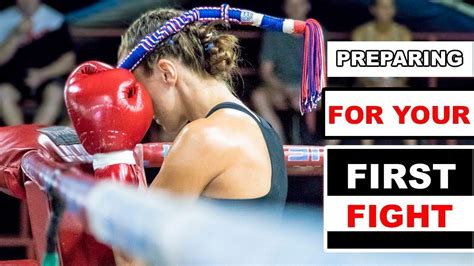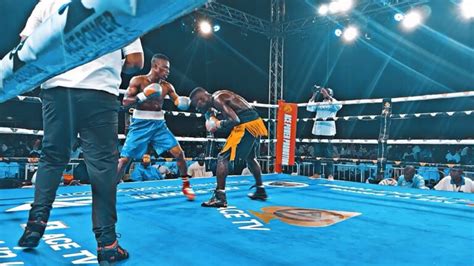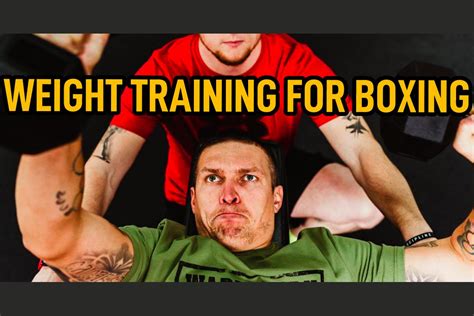Discover essential tips on mental preparation, training techniques, nutrition, game plans, gear, and recovery for boxing competitions to enhance your performance and success.**Boxing Competitions: How to Prepare for Your First Fight**
Stepping into the ring for your first boxing competition is an exhilarating yet daunting experience. A well-rounded preparation is crucial to not only enhance your performance but also to build your confidence. This article will guide you through essential aspects of readiness, from mental fortitude to physical training techniques. You’ll discover valuable nutrition tips to fuel your body, learn how to develop a winning game plan tailored to your style, and identify the essential gear needed for success. Moreover, we will touch on vital post-fight recovery strategies that will help sustain your boxing journey long after the final bell. Whether you’re a novice or just looking to refine your approach, our comprehensive guide will equip you with everything you need to face the challenge of your first fight.
Understanding The Importance Of Mental Preparation For Boxing Competitions
When it comes to preparing for boxing competitions, mental preparation is just as crucial as physical training. In the ring, a fighter’s mindset can often determine the outcome of the match. Developing a strong mental approach helps to enhance performance and manage the pressures of competition effectively.
One key aspect of mental preparation is visualizing success. By regularly imagining yourself performing well, you can build confidence and reduce anxiety. This technique allows boxers to create a mental image of their strategies and movements, helping them feel more prepared when the fight day arrives.
Additionally, tackling negative thoughts can significantly improve focus and determination. Engaging in positive self-talk and affirmations can combat doubts and reinforce confidence. It’s essential to remember that believing in your abilities can greatly influence your performance during the actual competition.
Staying relaxed and composed is another vital element of mental preparation. Techniques such as deep breathing exercises or mindfulness meditation can help manage stress and keep nerves at bay. By controlling anxiety, boxers can maintain clarity and focus during their matches, which is essential for executing their game plan effectively.
It’s important to learn from past fights and experiences. Analyzing previous performances—both wins and losses—can provide valuable insights into what strategies worked and what didn’t. This reflection can lead to a stronger mental game and better preparation for future competitions, ensuring that you continually evolve as a fighter.
Key Physical Training Techniques For Preparing For Boxing Competitions
When it comes to preparing for boxing competitions, physical training is a critical component that can greatly influence your performance in the ring. Here are some essential training techniques to incorporate into your regimen:
- Cardiovascular Endurance: Engaging in high-intensity interval training (HIIT) or roadwork (jogging, sprinting) is vital for building stamina. This helps improve your anaerobic capacity, allowing you to maintain energy levels throughout the fight.
- Strength Training: Incorporating weightlifting or bodyweight exercises focuses on building core strength and overall power. Exercises like squats, deadlifts, and push-ups are excellent for boosting your strength, which is crucial for powerful punches.
- Speed and Agility Drills: Plyometric exercises, ladder drills, and shadowboxing are effective for enhancing your hand speed and footwork. These drills improve your reflexes, vital for evading punches and making quick movements.
- Technical Sparring: Regular sparring sessions allow you to practice techniques and apply them in real-time situations. This also helps develop your timing and distance management, two skills you’ll need during actual competitions.
- Flexibility Training: Incorporating stretching routines or yoga can improve your flexibility, helping you prevent injuries and increase your range of motion, which is essential for maintaining proper form while boxing.
By incorporating these techniques into your training plan, you’ll be better equipped for the physical demands of a boxing competition, ensuring you’re both fit and confident as you approach your first fight.
Nutrition Tips To Fuel Your Body Before A Boxing Match
Proper nutrition plays a vital role in preparing for boxing competitions. The right diet can enhance your performance, improve your recovery, and help you maintain the energy levels needed for rigorous training and competition. Here are some essential nutrition tips to consider before your first fight:
- Carbohydrate Loading: Engage in carbohydrate loading in the days leading up to your fight. This helps ensure your muscles are stocked with glycogen for energy. Whole grains, fruits, and vegetables should be your primary sources.
- Hydration: Stay well-hydrated before your match. Aim to drink at least 2-3 liters of water in the days prior. Dehydration can significantly impact performance, so ensure you are drinking enough fluids.
- Lean Proteins: Incorporate lean proteins to support muscle repair and recovery. Options like chicken, fish, tofu, and legumes are excellent choices. Aim for a protein-rich meal the night before your fight.
- Healthy Fats: Include sources of healthy fats such as avocados, nuts, and olive oil for sustained energy. They can also help with nutrient absorption.
- Pre-Fight Meal: Have a balanced meal about 3-4 hours before your fight. This should consist of carbohydrates, lean protein, and some healthy fats. For example, whole-grain pasta with grilled chicken and a side of vegetables.
- Snack Wisely: If you need a snack before the fight, opt for something light that is easily digestible, such as a banana or an energy bar, about one hour prior.
Keep in mind that every athlete’s body reacts differently to food intake. It’s crucial to experiment with your nutrition during training to find what works best for you. By following these nutrition tips, you’ll be better equipped and more confident in your preparation for boxing competitions.
Developing A Winning Game Plan For Your First Fight
When it comes to preparing for boxing competitions, having a well-thought-out game plan can make all the difference in your performance. A winning strategy not only boosts your confidence but also helps you stay focused and adaptable during the fight. Here are some crucial steps to consider when developing your game plan:
- Know Your Opponent: Research your opponent’s fighting style, strengths, and weaknesses. Watch videos of their previous fights if possible. Understanding their strategies can help you formulate counter-techniques.
- Focus On Your Strengths: Identify what you do best in the ring—be it speed, power, or technical skills. Craft your game plan around these strengths to maximize your advantages.
- Practice Different Scenarios: Train for various fight situations during practice. Simulate different styles of opponents and practice responding to them, ensuring you are well-equipped to handle anything that comes your way.
- Set Specific Goals: Establish clear, achievable tactical goals for the fight, such as landing a specific number of jabs or using a particular combination consistently. This will give you measurable targets to focus on during the match.
- Stay Flexible: While having a plan is vital, being able to adapt to the dynamics of the fight is equally important. Train to think on your feet and adjust your strategies as needed based on how the fight unfolds.
- Incorporate Recovery Strategies: Make sure your game plan also includes how you will handle fatigue and stress during the match. Have clear recovery methods for when you need to reset mentally and physically.
- Engage Your Coach: Work closely with your coach to refine your strategy. Their experience and perspective can provide additional insights that can enhance your game plan.
Developing a winning game plan is crucial when preparing for boxing competitions. A thoughtful strategy that considers both your strengths and your opponent’s weaknesses can set the foundation for success in your first fight. Embrace the process as part of your overall preparation, and you’ll feel more confident stepping into the ring.
Essential Gear And Equipment For Preparing For Boxing Competitions
When preparing for boxing competitions, selecting the right gear and equipment is critical for ensuring safety, comfort, and optimal performance during your training and fights. Here’s a breakdown of the essential items you will need:
| Equipment | Purpose |
|---|---|
| Boxing Gloves | Protect your hands and provide cushioning when striking. |
| Hand Wraps | Support your wrists and knuckles, reducing the risk of injury. |
| Headgear | Protect your head during sparring sessions. |
| Mouthguard | Safeguard your teeth and jaw from impacts. |
| Boxing Shoes | Provide the necessary grip and support for agility and footwork. |
| Skipping Rope | Enhances cardiovascular fitness and foot speed. |
| Heavy Bag | Helps develop power, technique, and conditioning. |
| Speed Bag | Improves hand-eye coordination and quickness. |
| Resistance Bands | Aids in strength training and flexibility exercises. |
| First Aid Kit | Provides necessary items for minor injuries during training. |
Investing in high-quality gear is not only a step towards a proper training regimen but also an important element in preparing for boxing competitions. This gear ensures you can train effectively while protecting yourself and enhancing your skills in the ring.
Post-Fight Recovery Strategies To Sustain Your Boxing Journey
After the adrenaline of your first fight has settled, it’s crucial to focus on recovery to ensure you can continue your journey in the sport. Proper post-fight recovery not only minimizes physical soreness and injury but also plays a significant role in your mental resilience. Here are some effective strategies to consider:
- Rehydrate and Refuel: After an intense bout, your body needs to replenish lost fluids and nutrients. Drink plenty of water, and consider sports drinks that offer electrolytes. Opt for a nutrient-rich meal within an hour after your fight, focusing on proteins and carbohydrates to aid muscle recovery.
- Rest and Sleep: Give your body adequate time to recover by ensuring you get enough sleep in the days following your fight. Quality sleep supports muscle repair and cognitive functioning, both of which are vital as you prepare for future competitions.
- Gentle Movement and Stretching: Light movement such as walking or yoga helps to keep your blood flowing, reduces stiffness, and enhances recovery. Incorporate stretching exercises to maintain flexibility and prevent injuries.
- Cold/Hot Therapy: Utilize ice packs on any bruised or swollen areas to reduce inflammation. Conversely, applying heat can help with muscle relaxation. Experiment with both methods to see what provides your body with the best relief.
- Reflection and Analysis: After your match, take time to reflect on your performance. Analyzing what worked well and what areas need improvement will help you grow as a fighter. Note these insights down for future reference as you continue preparing for boxing competitions.
- Maintain a Balanced Training Routine: Once recovery is underway, reengage with your training in moderation. Focus on technique, conditioning, and strategy rather than heavy sparring immediately post-fight. Gradually build back up to your regular training regimen.
By implementing these recovery strategies, you ensure that your body and mind are prepared for the challenges ahead in your boxing career, allowing for sustained participation in the sport.
Frequently Asked Questions
What is the best way to physically prepare for my first boxing fight?
Focus on building your strength, endurance, and technique through a combination of cardio workouts, strength training, and practicing boxing drills.
How can I mentally prepare for the stress of my first boxing competition?
Visualize your performance and practice mindfulness techniques to stay calm. Spar with different partners to expose yourself to varied situations.
What gear do I need for my first boxing fight?
You will need boxing gloves, hand wraps, a mouthguard, headgear, and appropriate footwear to ensure safety and comfort during the fight.
How should I structure my training routine leading up to the fight?
Aim for a balanced training routine that includes technique work, sparring, strength training, and conditioning, gradually increasing intensity as the fight date approaches.
What should I eat in the weeks leading up to my boxing competition?
Focus on a balanced diet rich in carbohydrates for energy, lean proteins for muscle repair, and healthy fats. Stay hydrated and consider meal prepping for consistency.
How do I find a boxing coach or trainer for my first fight?
Research local boxing gyms, ask for recommendations from friends, or look for certified trainers who have experience preparing fighters for competitions.
What should I expect on the day of my first boxing match?
Be prepared for a mix of excitement and nerves. Arrive early to warm up, stay hydrated, and focus on your game plan while being aware of match regulations and protocols.









